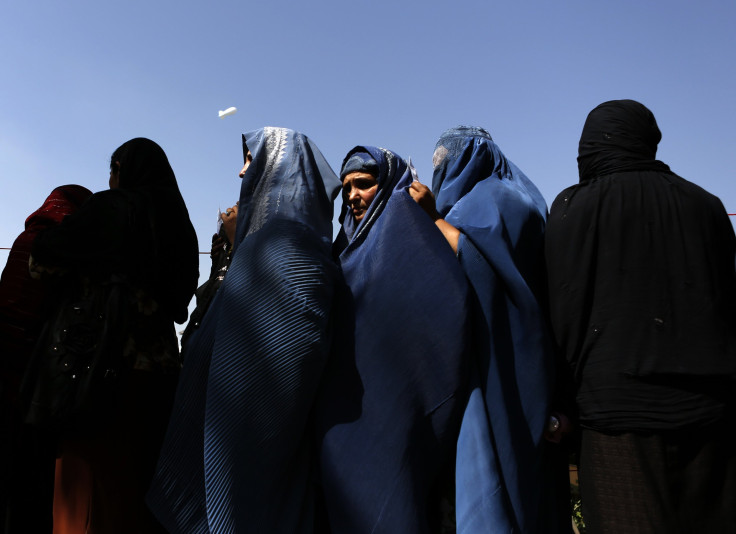ISIS Bans Burqas: Islamic State Deems Hijab A Security Problem In Iraq

The Islamic State group has reportedly banned women from wearing a burka, a veil that covers the entire face, as a security precaution in the northern Iraqi city of Mosul. The alleged new rule is striking in part because the militant group also known as ISIS has beaten and killed women in the past for refusing to wear the conservative garment.
Militant leaders banned burqas after a group of veiled women carried out attacks against several ISIS commanders, according to media reports Tuesday. Women wearing burqas will no longer be allowed to enter buildings in Mosul, an ISIS stronghold, while wearing the full-body covering. Instead, they must wear gloves and gauze to cover their eyes. ISIS' morality police will continue to require women to wear the burqa outside of Mosul's new security rule, the Jerusalem Post reported.
ISIS has a poor record when it comes to women's rights, according to a recent Human Rights Watch report. The group is accused of raping and trading women and limiting women's freedom of movement, access to health care and education.
"Some women said they felt deeply humiliated by their treatment by ISIS, and two said they felt so depressed they had wanted to kill themselves," the report stated.
If the reporting is to be believed, you can no longer wear a burqa in Daesh-controlled Mosul. https://t.co/HtbtFpgV4M
— Paul D (@Paulmd199) September 6, 2016
Conservative governments fearful of Islamic terrorism have banned burqas in recent years, drawing criticism from Muslim and progressive leaders who claim the laws oppose religious freedom and are anti-Islam. In 2015, Muslim women in the Chinese city of Urumqi in the western Xinjiang region were prohibited from wearing the burqa. Critics claim the rule was part of an effort to alienate the Uighurs, a sizable Muslim ethnic group in the region.
France banned garments that cover up people's face in public in 2011, including a burqa, niqab, which leaves a slot for a woman’s eyes, and masks. In Belguim, Brussels also outlawed full-face veils in 2011.
While burqas are mandatory in Iran and Saudi Arabia, some Muslim-majority nations have also debated banning face veils to protect national security. In Syria, officials banned veils from universities in 2010, while a proposed veil ban in Tunisia in 2015 prompted a national outcry, Quartz reported.
© Copyright IBTimes 2024. All rights reserved.






















